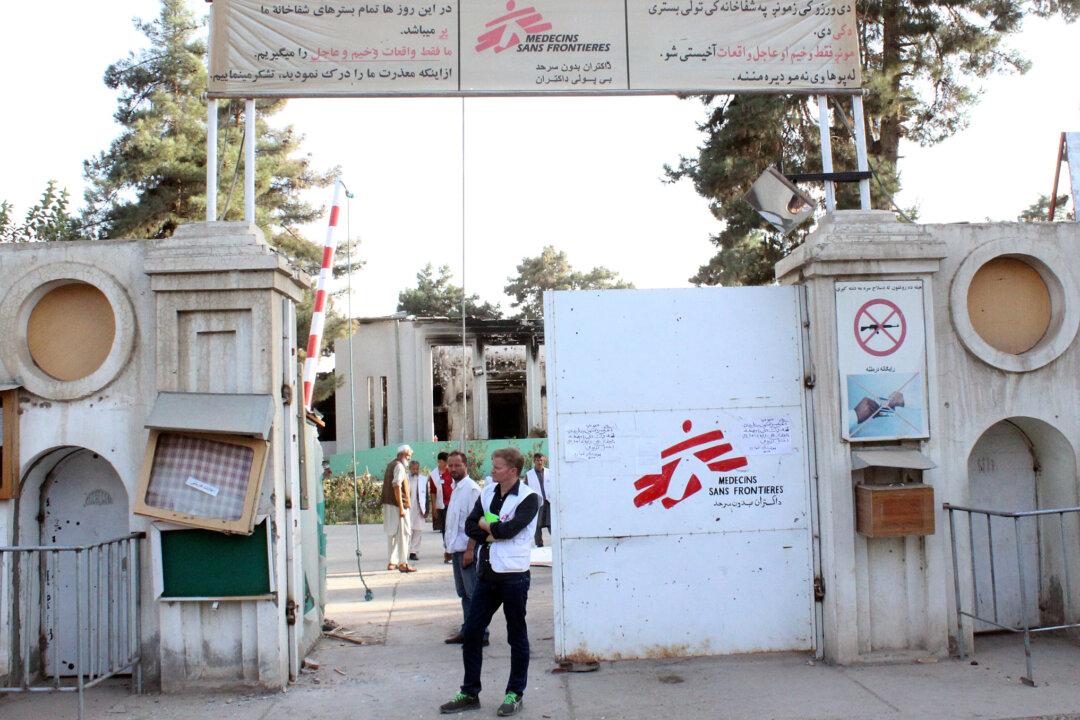GENEVA—Doctors Without Borders says it took the wrenching decision not to formally inform Syria’s government or its Russian allies about the location of some medical facilities like one hit by a deadly airstrike this week, amid concerns that by doing so it could open them up to targeting amid recent violence that has injured and killed many civilians.
The charity, also known by its French acronym MSF, says repeated attacks against health facilities during Syria’s five-year civil war has led medical staffers to ask the group not to provide the GPS coordinates of some sites like one in the town of Maaret al-Numan, which was hit four times in attacks on Monday, killing at least 25 people.
“Deliberate attacks against civilian infrastructures including hospitals struggling to provide life-saving assistance are routine,” MSF International President Joanne Liu told reporters in Geneva on Thursday. “Health care in Syria is in the crosshair of bombs and missiles. It has collapsed. Let me be clear: Attacks on civilians and hospitals must stop. The normalization of such attacks is intolerable.”
Liu said the group has no certainty about who was responsible for the strikes, but the “probability” was that Syrian or Russian air power was to blame. She said MSF’s policy of not informing Syrian or Russian officials about the location of health facilities has become a “hot topic” inside the organization.
In Brussels, European Union leaders were expected to call on Russia and Syrian President Bashar Assad’s forces to halt attacks on moderate opposition groups in Syria and immediately end all airstrikes. A draft statement for their summit starting Thursday, seen by The Associated Press, “calls on Russia and the Syrian regime to stop at once attacking moderate opposition groups.”
The statement “calls for an immediate cessation of aerial bombardments in civilian areas.”
MSF says that since the war broke out in 2011, the Syrian government has not granted permission for it to provide medical aid in the country despite its repeated requests. Because of that, its work has been limited to areas held by opposition forces. The group says it aims to help civilians and war wounded.
After the latest strikes, MSF operations director Isabelle Defourny says she expects affiliated medical staffers in Syria now will ask that their locations be specified to government officials.





